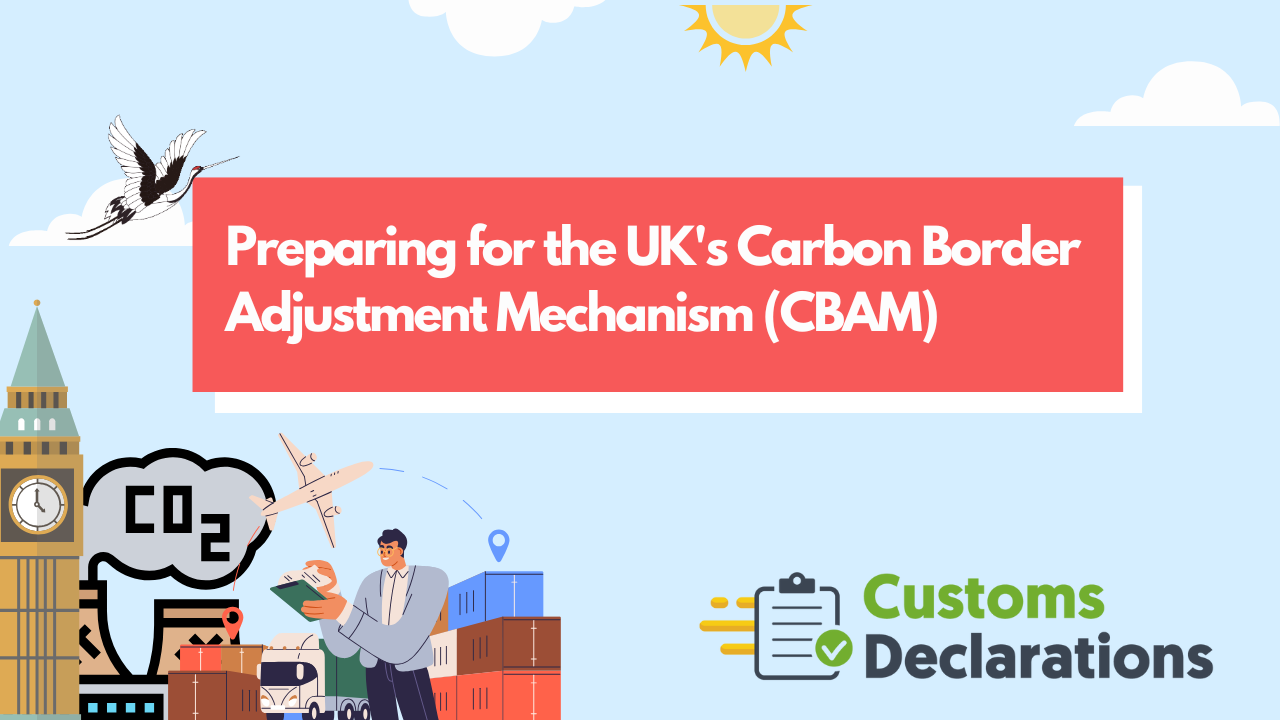The United Kingdom is set to introduce a Carbon Border Adjustment Mechanism (CBAM) aimed at aligning carbon costs for imports with domestic production, thereby preventing carbon leakage and promoting global decarbonization efforts.
Understanding CBAM
CBAM is a trade policy tool designed to impose a carbon price on imports of certain goods from countries with less stringent carbon pricing mechanisms. Its primary objective is to prevent carbon leakage, which occurs when companies relocate production to countries with laxer emission constraints, undermining global climate change mitigation efforts.
Implementation Timeline
- Consultation Phase (2024-2025): The UK government conducted consultations to design and refine the CBAM framework, engaging with stakeholders to address feasibility concerns and sector-specific implications.
- Preparation Phase (2025-2026): This period is dedicated to system testing and industry preparation, allowing businesses to adapt to upcoming requirements.
- Enforcement Date (January 1, 2027): CBAM is scheduled to come into effect, requiring importers to comply with new carbon pricing regulations.
Implications for Importers
Importers dealing with specific goods will be directly affected by CBAM. Key sectors include:
- In-Scope Sectors:
- Aluminium
- Cement
- Fertilisers
- Hydrogen
- Iron and Steel
These sectors are targeted due to their high carbon intensity and significant contribution to industrial emissions.
Compliance Requirements
Importers will need to:
- Emissions Reporting: Accurately report the carbon emissions embedded in their imported goods.
- Carbon Levy Payments: Pay a levy corresponding to the carbon content of the imports, aligning with the UK’s domestic carbon pricing.
- Supply Chain Assessment: Evaluate and possibly restructure supply chains to source materials with lower carbon footprints, thereby reducing financial liabilities under CBAM.
Exclusions and Future Considerations
Initially, sectors such as glass and ceramics are excluded from CBAM due to feasibility concerns raised during consultations. However, the government may consider including these sectors in the future as the mechanism evolves.
Strategic Preparation for Importers
To effectively prepare for CBAM, importers should:
- Assess Carbon Footprints: Conduct thorough assessments of the carbon emissions associated with their imported goods.
- Engage with Suppliers: Collaborate with suppliers to obtain accurate emissions data and explore options for reducing carbon intensity.
- Monitor Policy Developments: Stay informed about CBAM regulations and seek guidance to ensure compliance.
- Invest in Sustainability: Consider investing in sustainable practices and technologies to minimize carbon liabilities and enhance competitiveness.
Customs Declarations UK Support for CBAM Compliance:
As the UK prepares to implement the Carbon Border Adjustment Mechanism (CBAM) by January 1, 2027, the Customs Declarations UK platform will enable features designed to support importers in achieving compliance.
Automated Emissions Reporting
Customs Declarations UK will enhance its platform to automate the calculation and reporting of carbon emissions embedded in imported goods. This future capability will streamline data collection and analysis, ensuring that businesses can generate accurate and timely emissions reports aligned with CBAM requirements.
Compliance Management
Customs Declarations UK will focus on integrating real-time compliance management tools into its platform. These tools will continuously monitor CBAM regulations and embed compliance checks into import processes, helping businesses minimize the risk of non-compliance and avoid penalties.
Integration with Existing Systems
Customs Declarations UK will support seamless integration of its platform with customers’ existing import and customs management systems. This upcoming feature will enable a unified approach to managing CBAM requirements, allowing businesses to maintain their operational efficiency while adapting to new regulations.
By introducing these features, Customs Declarations UK will position itself as a comprehensive solution for importers, simplifying CBAM compliance and helping businesses navigate these upcoming regulatory changes with confidence.

